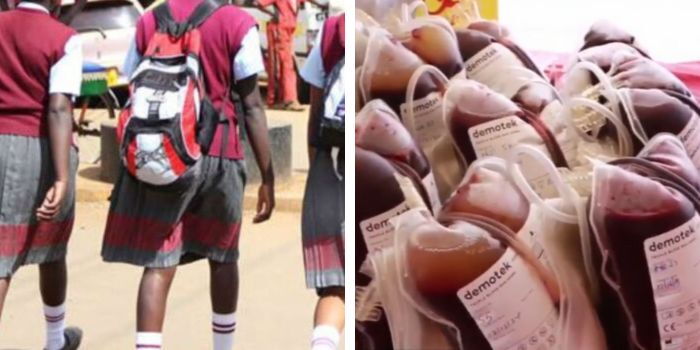Kenya, on Wednesday, December 13, was put at risk over a severe blood shortage that will threaten emergency medical and operation services in the country.
Stakeholders in the health industry raised alarm over the blood shortage that they blamed on the closure of schools in the country. Typically, secondary school students are the largest donors of blood countrywide and are the main target of health facilities during blood drives.
The health fraternity has said that the demand for blood in many parts of the country is rising to critical levels claiming that this will severely hamper the provision of medical services.
Gladys Omwenga, the head of blood transfusion at Mama Lucy Kibaki Hospital has stated there is a dire shortage of Rhesus negative, O negative (-), and positive (+) as well as B positive (+) blood in most parts of the country.
Mombasa residents donate blood on January 16, 2019.
Daily Nation
The shortage, which is occurring during the festive season, has only served to heighten fear of the impending effects on the lives of Kenyans.
Road accidents and other festive-related assault cases usually happen at an increased rate during this period leading to health providers calling for urgent intervention into this matter.
“Increased cases of road traffic accidents, other traumatic events like people fighting in the name of celebrating where they end up going overboard and harm each other result in them needing blood and surgeries,” Omwenga stated.
Aside from victims of road accidents, other persons that stand to be affected by the blood shortage are women seeking maternity services, chemotherapy, and radiotherapy cancer patients are also highly dependent on blood donations.
The health providers called upon Kenyans to come out and donate blood adding that it would go a long way in saving lives and increasing the country’s blood bank capacity.
“We want to call upon our fellow Kenyans to come out in large numbers and donate blood to help those in need, especially during this period. Blood is urgently needed in all parts of the country and we urge the people to donate,” a representative of the health officials stated.
Currently, The Kenya National Blood Transfusion Service (KNBTS), the state body in charge of blood transfusion services in the country has six Regional Blood Transfusion Centres (RBTCs) namely Nairobi, Embu, Nakuru, Eldoret, Kisumu, and Mombasa and 14 satellite centers located in Machakos, Kisii, Voi, Meru, Naivasha, Kakamega, Kericho, Nyeri, Garissa, Malindi, Thika, Lodwar, Bungoma and Kitale.
Functionally all six RBTCs and fourteen satellites carry out blood collection, grouping, storage, and distribution except for Naivasha and Kericho. Blood testing and processing is restricted to the six RBTCs except for the preparation of packed red cells which is also done at a few selected satellites.
Public Health Principal Secretary Mary Muthoni during a past event
Mary Muthoni


